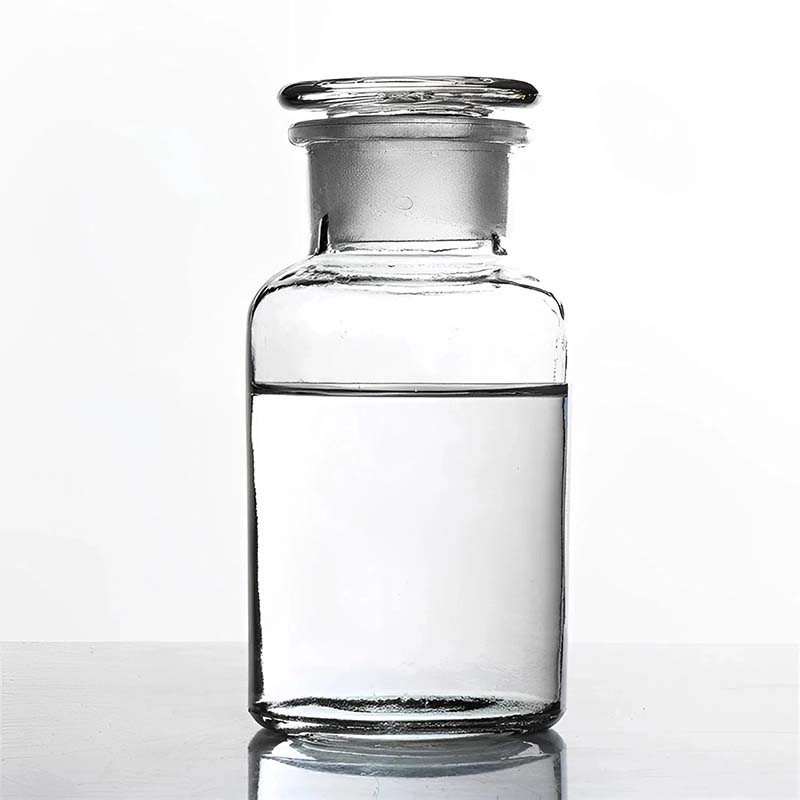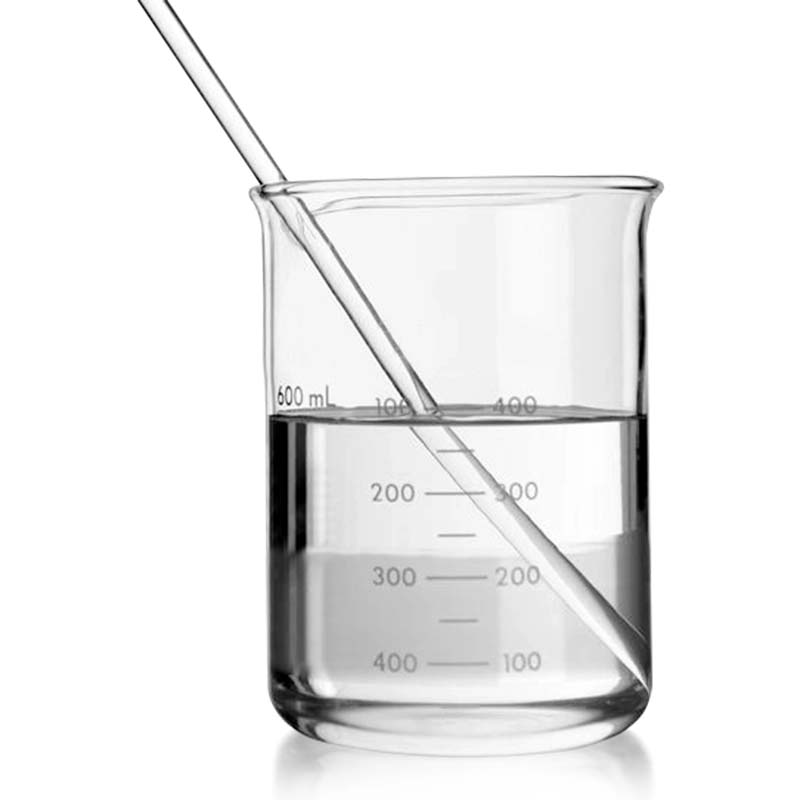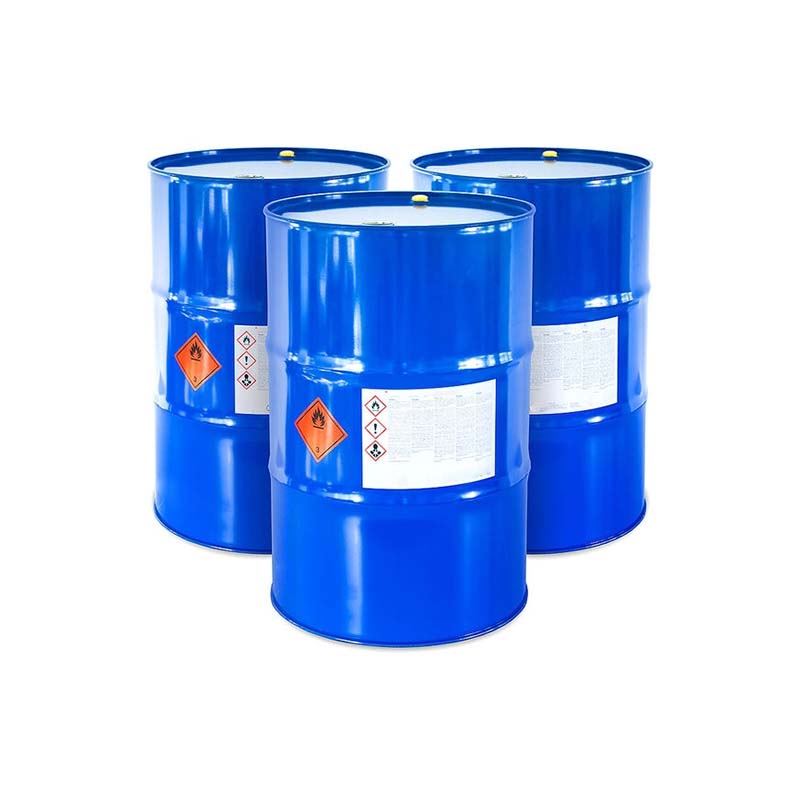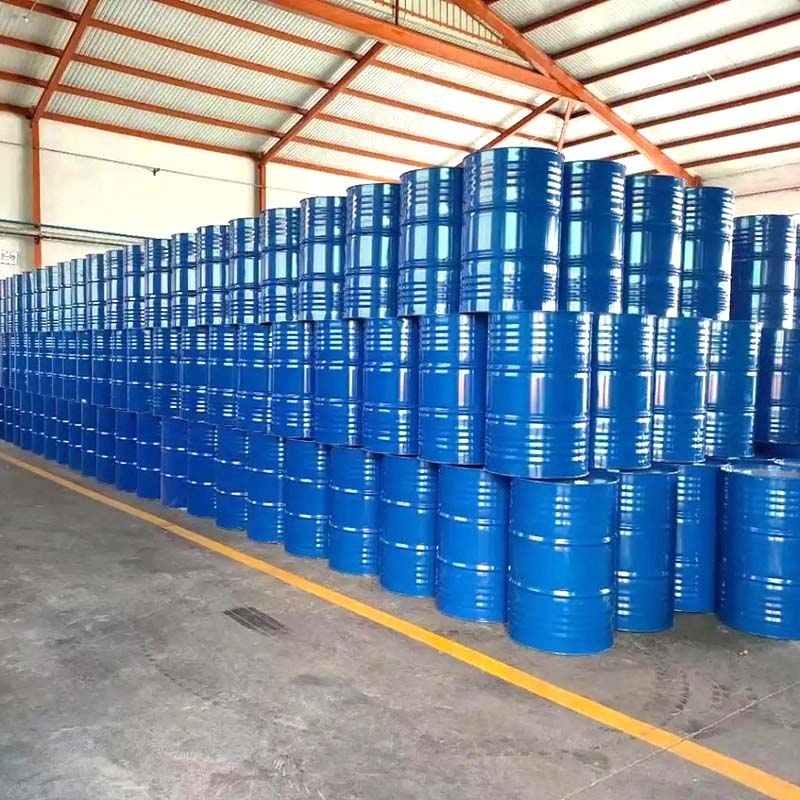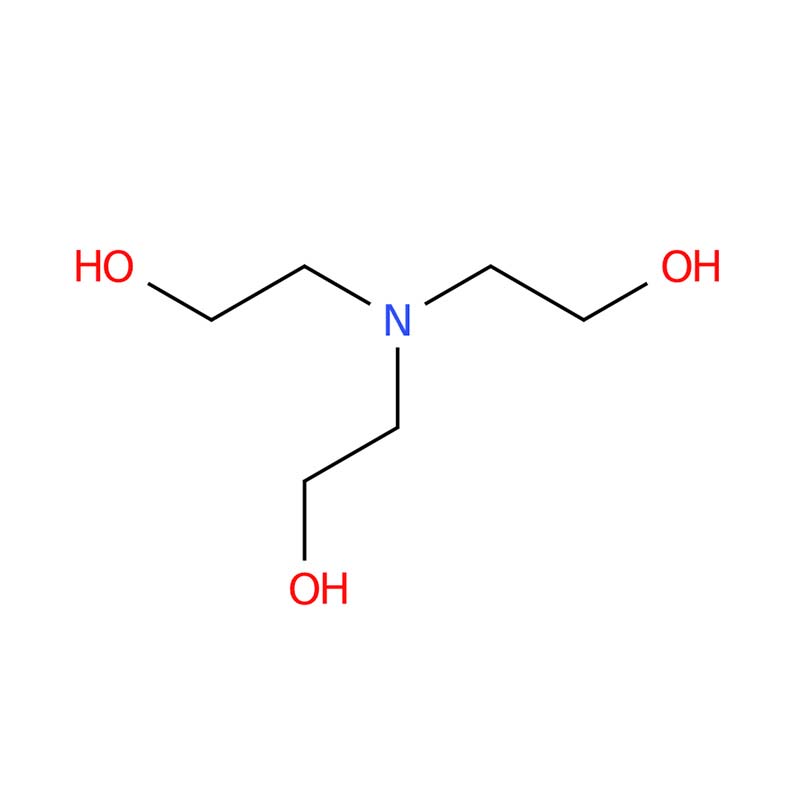Triethanolamine
Hygroscopicity: Triethanolamine exhibits strong hygroscopic properties, making it effective in applications that require humidity regulation or moisture retention.
Broad Solubility Profile: It is miscible with water, methanol, and acetone, and also soluble in benzene and ether, offering flexibility in a wide range of chemical and industrial formulations.
Alkaline Nature: As a strong organic base, it readily accepts protons, which allows it to participate effectively in chemical reactions such as condensations.
High Boiling Point: With a boiling point of 335.4°C, it demonstrates notable thermal stability, making it suitable for high-temperature industrial processes.
Triethanolamine, also referred to as trihydroxyethylamine or amino triethanol, is a clear, viscous liquid with an odor reminiscent of ammonia. It is highly hygroscopic and may develop a brownish tint upon exposure to air or light, particularly at higher temperatures. Under cooler conditions, it crystallizes into cubic crystals ranging from colorless to pale yellow.The compound has a melting point of 21.2°C and boils at 335.4°C under standard atmospheric pressure, or at 277°C under reduced pressure (19.950 kPa).
Its relative density is 1.1242, and it has a refractive index of 1.4852. A 0.1 mol/L aqueous solution exhibits a pH of approximately 10.5. Triethanolamine is miscible with water, methanol, and acetone; soluble in benzene and ether; and sparingly soluble in carbon tetrachloride and n-heptane. As a strong base, it readily undergoes protonation and is frequently employed in condensation reactions, underscoring its utility in diverse chemical applications.
Parameters
Melting point | 17.9-21 °C (lit.) |
Boiling point | 190-193 °C/5 mmHg (lit.) |
density | 1.124 g/mL at 25 °C (lit.) |
vapor density | 5.14 (vs air) |
vapor pressure | 0.01 mm Hg ( 20 °C) |
refractive index | n20/D 1.485(lit.) |
Fp | 365 °F |
storage temp. | Store at RT. |
solubility | H2O: 1 M, clear, colorless |
form | Oily Liquid |
Specific Gravity | 1.125 (20/20℃) |
color | Clear colorless to slightly yellow |
PH Range | 7.3 - 8.3 |
Odor | Mild ammoniacal. |
PH | 10.5-11.5 (25℃, 1M in H2O) |
pka | 7.8(at 25℃) |
explosive limit | 3.6-7.2%(V) |
Water Solubility | soluble |
Sensitive | Air Sensitive & Hygroscopic |
λmax | λ: 280 nm Amax: 0.1 |
Merck | 14,9665 |
BRN | 1699263 |
Exposure limits | ACGIH: TWA 5 mg/m3 |
Dielectric constant | 6.9(40℃) |
InChIKey | GSEJCLTVZPLZKY-UHFFFAOYSA-N |
LogP | -2.3 at 25℃ |
Surface tension | 46.4mN/m at 293.15K |
CAS DataBase Reference | 102-71-6(CAS DataBase Reference) |
NIST Chemistry Reference | Triethanolamine(102-71-6) |
IARC | 3 (Vol. 77) 2000 |
EPA Substance Registry System | Triethanolamine (102-71-6) |
Safety Information
Hazard Codes | Xi |
Risk Statements | 36/37/38-36 |
Safety Statements | 26-39-36 |
WGK Germany | 1 |
RTECS | KL9275000 |
F | 3-10-23 |
Autoignition Temperature | 600 °F |
TSCA | Yes |
HS Code | 29221310 |
HS Code | 29321900 |
Hazardous Substances Data | 102-71-6(Hazardous Substances Data) |
Toxicity | LD50 orally in Rabbit: > 5000 mg/kg LD50 dermal Rabbit > 2000 mg/kg |



